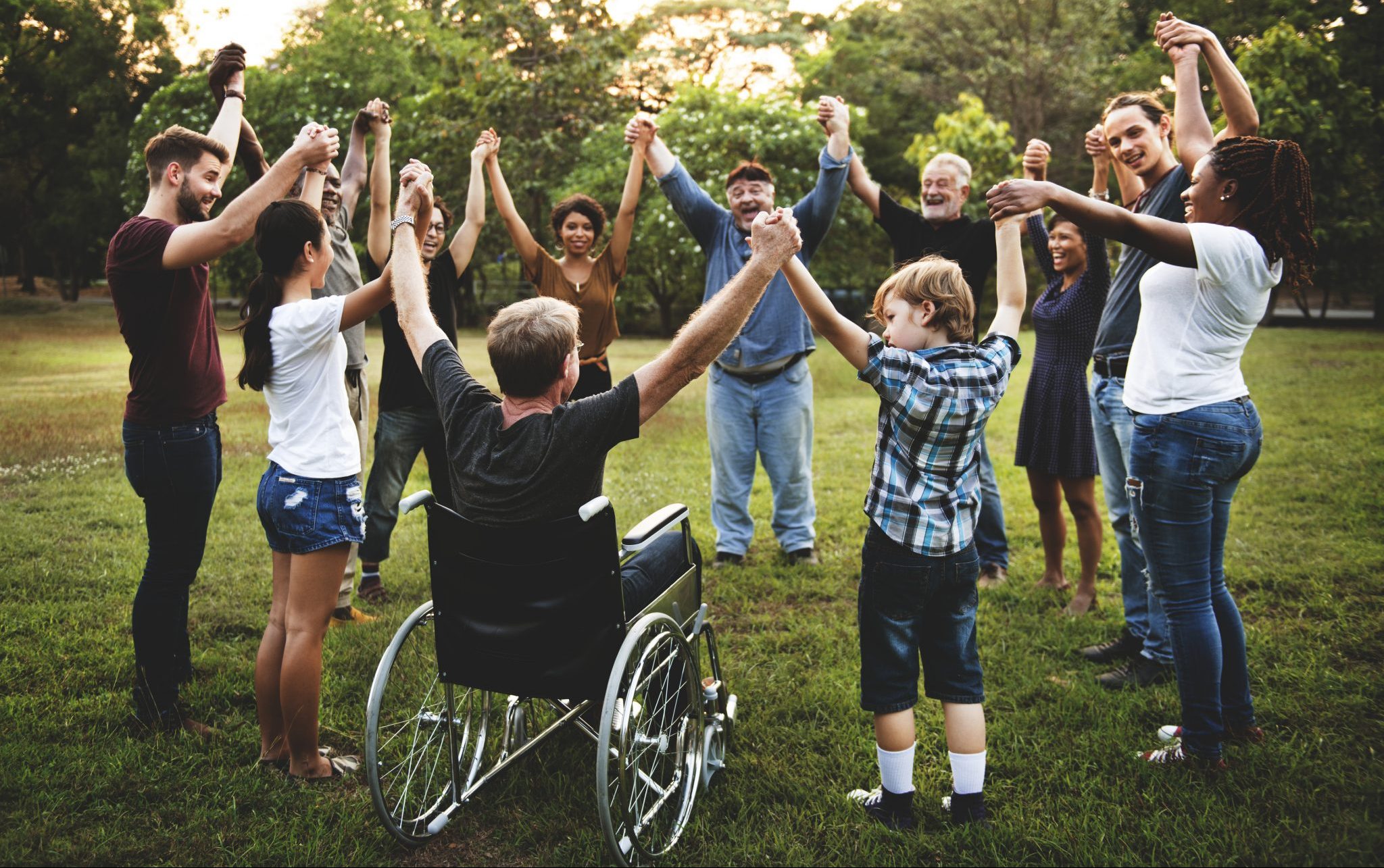When you hear the term social health for the first time, it can come across as a made-up thing. Well, it is in a way that almost everything in our communal world is sort of made up: languages, laws, countries. But maybe there’s just too much Y. N. Harari in my head… What I’m trying to say is that social health is as real as human psychology in general and here’s what it is.
By definition, social health is a person’s ability to interact with others and to develop and maintain satisfying interpersonal relationships. It is also deeply connected with one’s adaptability to and a level of comfort in finding oneself in different life situations, where interaction with others is required.
So we can say that it is roughly comprised of subjective well-being, adjustment, and functioning, all in relation to others.
What does it mean to be a socially healthy person?

We tend to think about our physical medium when the topic of health comes up. But now we know there’s more to it than this.
It’s interesting how the medical terms that were used to exclusively talk about a person’s physical state seeped into the social sciences. But I guess it’s no surprise, as all is intertwined.
Actually, according to the World Health Organization (WHO), health is now broadly understood as a condition comprised of three major states of being: physical, mental, and social. All of them are strongly interlinked: when one of them is crippled, the other two start falling apart too.
Being more social is linked to a lower risk of:
- mortality;
- cardiovascular diseases;
- high blood pressure;
- cancer;
- stroke;
- depression;
Socially active people tend to have:
- a sharper memory;
- stronger immune system;
- faster recovery from illnesses;
- a more positive attitude.
However, much of the research that has a backed these conclusions measure a subjectively perceived loneliness and not the objective activeness in interpersonal relationships.
We don’t have an easy answer to the question of how to be socially healthy, though. It’s one of those things that we start to think about only when there’s something wrong in this area of life. It’s a parameter a lot more difficult to measure as the norm (or the baseline) can range significantly throughout the vast spectrum of personalities.
One of the elements of social health is adjustment, which largely means how much a person is adapted to the norms and roles inside of his or her community.
This measurement quickly becomes very problematic, when we think of the people who are resisting or even actively fighting against the social norms and traditional roles in the name of collective progress, human rights, or personal happiness.
In this case, a person may find oneself being separated from one’s larger community such as a country and its norms by this deep gap in outlook towards life. But it doesn’t necessarily indicate that this person is socially unhealthy, as we have to look into his or her relationship with the immediate community (e.g. LGBT, feminists, vegans) and see how he or she is integrated into it.

Also, there is no universally recommended number of hours per week of high-quality social interactions that would be suitable for every type of personality and temperament. Introverts will obviously need a lot less time spent with others than extroverts. But here it’s crucial to remember that quality and mutual enjoyment is more important than the quantity of interactions.
The difference between loneliness and solitude
Being alone doesn’t necessarily mean feeling lonely. And vice versa – being surrounded by people doesn’t mean you can’t feel lonely.
Both loneliness and solitude are important parts of human life. Solitude is crucial for introspection, reflection, self-awareness, and creativity. On the other hand, a dash of loneliness once in a while is important for existential reflection.
In his book “Loneliness: Human Nature and the Need for Social Connection,” social neuroscientist John Cacioppo argues that as species we developed a sense of loneliness to make us seek and maintain human connections.
The amount of solitary time that a person needs without feeling discomfort largely depends on the personality, a chosen lifestyle, vocation, and so on. But the amount of tolerable loneliness, or subjectively perceived isolation, is much more universal.

Determine if your social health is in check:
- Do I feel I spend enough time with others?
- Do I feel I spend enough time alone?
- Do I have enough people with whom I keep regular contact?
- Do I like these people and do I enjoy their company?
- Do I think others enjoy my company?
- Can I get support and help from these people when I need it?
- Do I provide support and help to these people when they need it?
- Do I feel like I belong?
- Do I know my personal boundaries and do I recognize when they are violated?
- Do I feel the personal boundaries of others?
- Do I trust people?
- Do I find connection with others easily?
- Am I happy with my social skills?
Ways to improve your social health:
- Prioritize quality over quantity;
- Cultivate kindness towards others;
- Work on your self-esteem;
- Work on your stress management;
- Work on your positivity;
- Find balance in talking and listening;
- Smile more to others;
- Be respectful to others;
- Eliminate the people from your life that promote negativity;
- Be more approachable and accessible;
- Use technology to seek out like-minded people;
- Remember that everybody feels lonely sometimes.



































